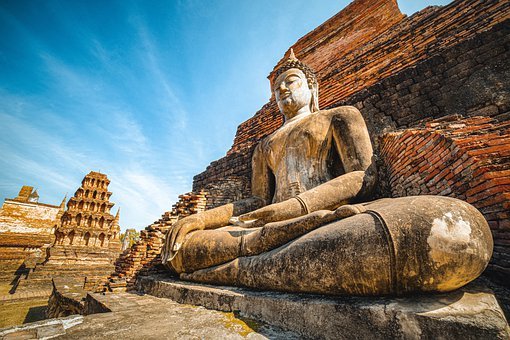Should all practitioners give up everything and retreat to the caves to meditate like Milarepa did? It would be great if one can do that, but most laypeople cannot and so the Buddha did not rule this way. In a nutshell, the Buddha only asked all Buddhists to be content with fewer desires, which means differently to the monastics and lay practitioners. How then should lay practitioners interpret this request from the Buddha?
~Depicted from THE RIGHT VIEW - The Way of Living and the Meaning of Life











